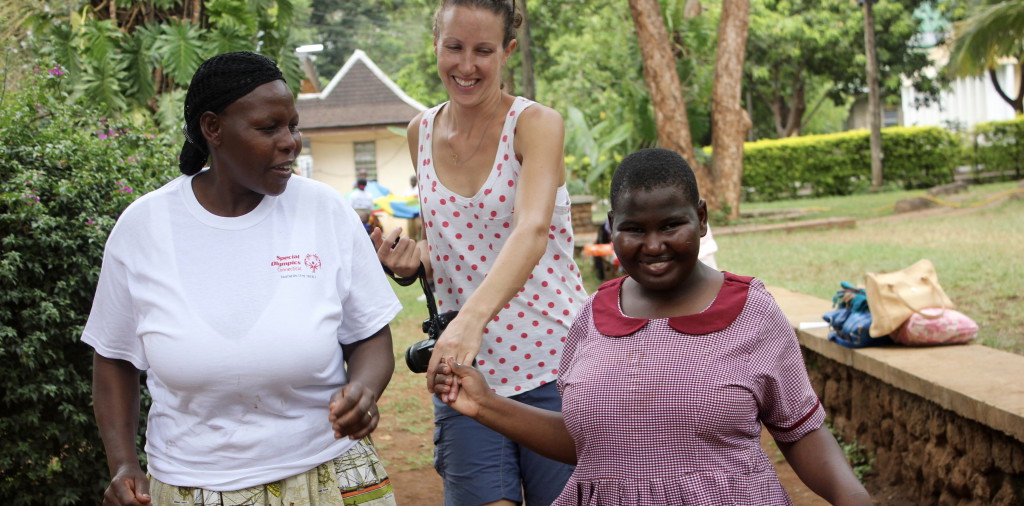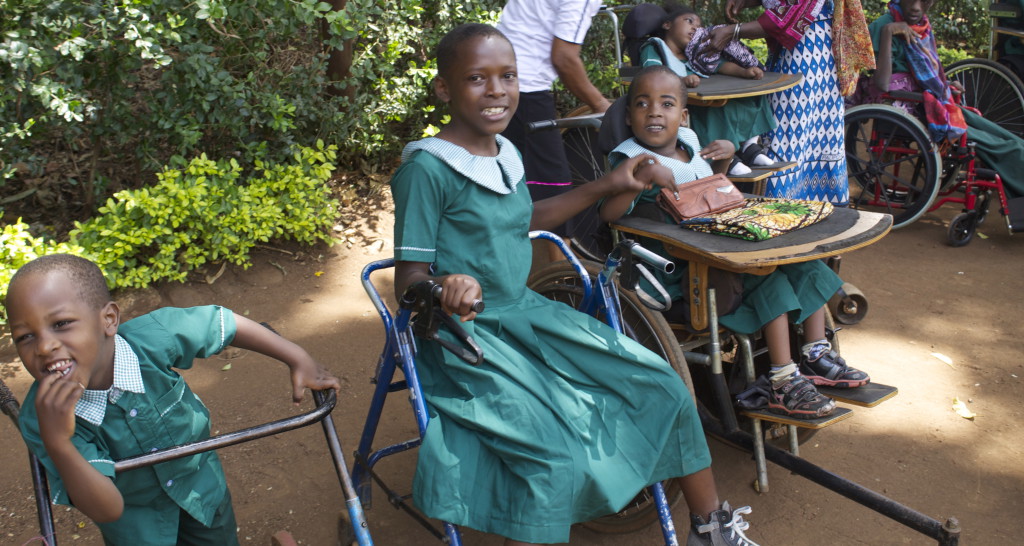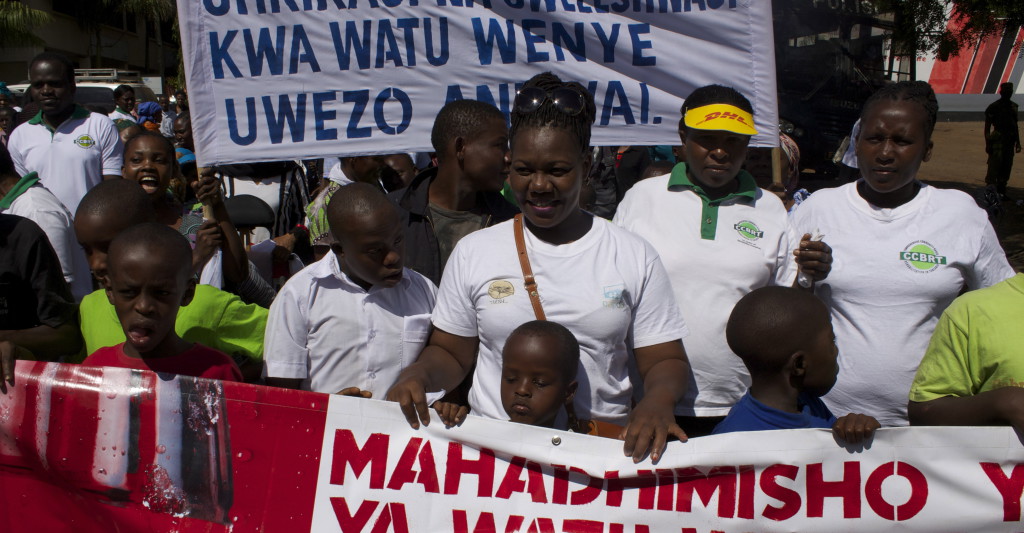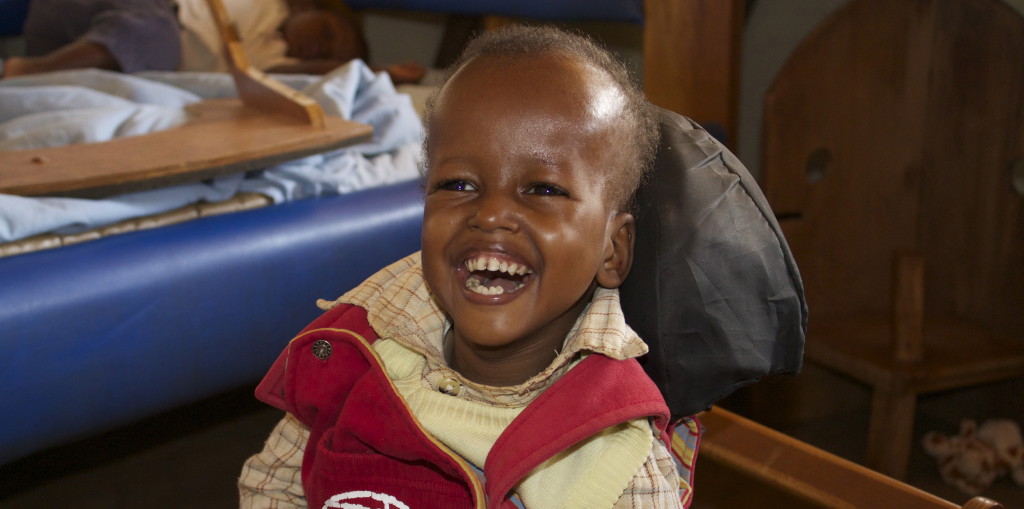The Carman International Fellowship at Mosaic provides recent graduates interested in disability and international development an opportunity to work full time with Mosaic’s local partner, Building a Caring Community (BCC), at the grassroots level in Moshi, Tanzania. BCC supports 220 children and young adults with intellectual disabilities, a very under-served population in Sub-Saharan Africa. Fellows help support BCC’s core programs which include ten centers throughout the Moshi area where children come to receive basic therapies and education as well as two meals a day. BCC also provides in-home support programs for children who are unable to attend the centers and an inclusive education classroom in a local public school. Fellows are provided a monthly stipend, housing allowance and round-trip travel to Tanzania.
To learn more about this extraordinary opportunity, we interviewed current fellow Meritt Buyer. The daughter of a child psychologist and special education teacher, Meritt grew up in a household that embraced all kinds of differences: race, nationality, sexuality, and ability, including her younger brother’s disability. Her childhood experiences and her interest in international development set her on a path towards Mosaic’s Carman International Fellowship.
1. What inspired you to apply for the Mosaic Fellowship?
I am an insatiable reader and upon finishing Cry, the Beloved Country at age twelve, I became enamored with all things South African. In college, I took every class on sub-Saharan Africa that was offered. The material also formed a natural juncture with my interest in community development, international justice, and human rights.
In between studying Arab trade routes and the Truth and Reconciliation Commission, I volunteered at a local shelter and spent one afternoon a week with a middle aged woman with an intellectual disability. Mostly, we did craft projects and went to the store for bean sprouts, her favorite snack. Mary differed dramatically from the people with whom I had grown up. She was African-American, from inner city Baltimore and HIV-positive. For the first time, I began to fully recognize the diversity of experiences of those who identified as having a disability. ‘Intersectionality’ became a term that had concrete meaning in my life.
Three weeks after graduating from college, armed with all the books and classroom knowledge I had gained over the past nine years, I moved to Cape Town, South Africa. When I moved overseas, my perspective on what it means to have a disability was challenged to an even greater extent. For all the struggles my family, or even Mary, faced, they differed drastically to the challenges faced by families affected by disability in the Cape Flats. During my tenure there, I was primarily involved with typical high school students and Somali refugees. I taught environmental and human rights education in township high schools, and advocated for asylum seekers access to resources. I completed my Masters degree in courses in History and Public Policy, focusing on refugee experiences and immigration policy. Yet, the awareness of other types of difference that had been ingrained in me since childhood persisted. I could not help but notice that lack of support services for children with disabilities within the schools, or the way that the unpaved roads of the townships would have made a trip to the lavatory for anyone in a wheelchair near impossible.
After returning to the US from South Africa, I worked with a national organization that provides programming to people with a wide range of disabilities. I learned a great deal from my clients: patience, communication, self-awareness, and persistence. I had the opportunity to assist on a report on the right to adequate housing for persons with disabilities, contracted by UN Habitat. My involvement has given me an even deeper appreciation for the diversity of the experiences of disability and the international bodies at play.
Mosaic’s International Fellowship in Tanzania provided the perfect opportunity for me to combine my international development knowledge with my experience of disability. I was particularly attracted to Mosaic because of their rights-based approach to advocating for disability communities. When applying for fellowship, I had hoped to gain direct experience working with successful local initiatives within a global context. I wanted to increase my understanding of how larger international organizations and national and sub-national policy makers work with grassroots programs. As the perception of people with disabilities varies throughout the world, working in Moshi provides me with additional insight into a particular locale and culture and therefore how care and support services function within that context. Finally, I wanted to develop practical skills in public health research and advocacy.
2. What is a typical week like for a Mosaic fellow?
I often explain this job as being on an endless roller coaster. I often hit the highest of highs and lowest lows multiple times within the same day. Last month, one of our original and very beloved clients passed away due to malaria. Last week, an eight-year-old boy learned to walk on his own. He can now take about eight steps without assistance. You can imagine the grin on his face and his laughter as the whole room cheers him on. He is so proud of himself. There is no such thing as a typical week.
As a fellow, I am involved in nearly every aspect of the program here in Tanzania. I accompany our health program coordinator on the back of his pikipiki (small motorcycle, a very common form of transport here) on home visits and organize data on the prevalence of malnutrition and pneumonia among our kids. I assist with the implementation of our new young adults program, which includes trying to get an irrigation system installed in our small farm, coordinating a recycling program, and developing assessment forms. I am the primary contact on the ground for Mosaic’s US based staff. So, I spend a lot of time creating outreach materials to be used in the US that illustrate the realities of life here, such as writing a blog, and taking photos and videos. I am also trying to implement a more formal monitoring and evaluation system for the program, as this is rather new concept for BCC. I try to support our center staff in providing better education and therapies to our kids, which often just means spending time in centers, identifying needs, providing solutions where possible, and offering encouragement. I love spending time in our centers, getting to know the kids and understanding their needs. I love working with center staff to make small improvements, all in my halting Swahili.
Right now, I am helping to put together a series of trainings on nutrition for staff and parents. I am organizing a training on women’s reproductive health for our young women and their caregivers. I am working on building a relationship with another local organization so that our children may be able to access more formal therapies and better mobility equipment through them. I am also conducting the annual evaluations for all the centers and trying to implement a more structured monitoring and evaluation process.
3. What tips would you give others applying to the Mosaic Fellowship?
Ideally, Mosaic is looking for someone with a significant amount of field experience who is prepared for the realities of working in a resource poor setting. This particular role requires someone to be extremely stubborn, and also extremely flexible, depending on the situation. My time in South Africa, and this odd combination of personality traits, definitely helped me to get the position.
It is also very important to understand of the complexities of disability and have a demonstrated interest in the field. Mosaic also looks for technical skills, such as writing ability, knowledge of monitoring and evaluation, etc.
I also think that being able to articulate how you will use your current skills to the benefit of Mosaic, as well as how you will use the skills learned through the fellowship to further your career is very important both in the application and the interview process.
Meritt Buyer graduated from Wellesley College with a degree in Peace and Justice Studies. She earned a Masters degree in History and Public Policy at the University of Cape Town.
© Victoria Johnson 2016, all rights reserved.



